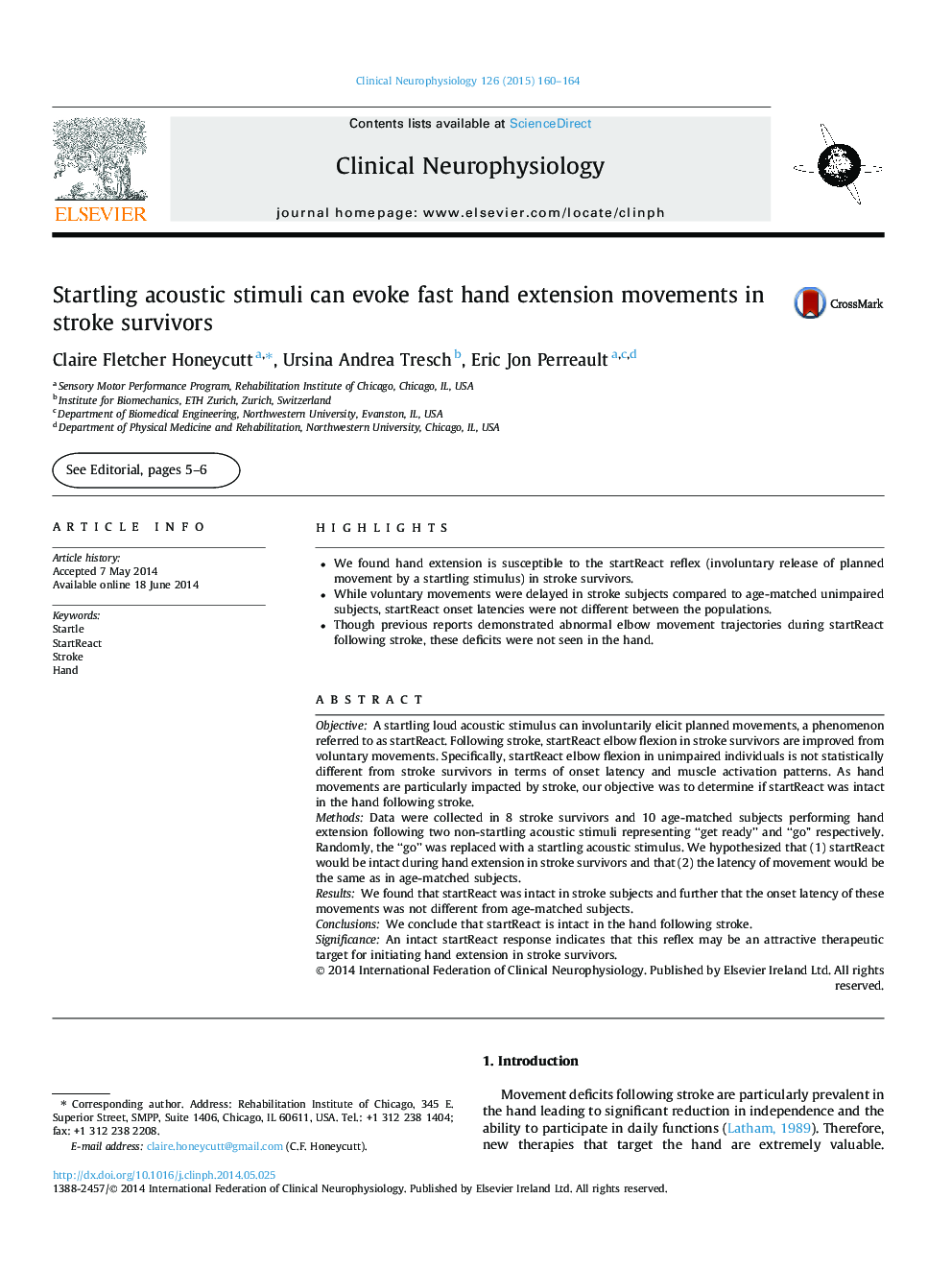| Article ID | Journal | Published Year | Pages | File Type |
|---|---|---|---|---|
| 3043222 | Clinical Neurophysiology | 2015 | 5 Pages |
•We found hand extension is susceptible to the startReact reflex (involuntary release of planned movement by a startling stimulus) in stroke survivors.•While voluntary movements were delayed in stroke subjects compared to age-matched unimpaired subjects, startReact onset latencies were not different between the populations.•Though previous reports demonstrated abnormal elbow movement trajectories during startReact following stroke, these deficits were not seen in the hand.
ObjectiveA startling loud acoustic stimulus can involuntarily elicit planned movements, a phenomenon referred to as startReact. Following stroke, startReact elbow flexion in stroke survivors are improved from voluntary movements. Specifically, startReact elbow flexion in unimpaired individuals is not statistically different from stroke survivors in terms of onset latency and muscle activation patterns. As hand movements are particularly impacted by stroke, our objective was to determine if startReact was intact in the hand following stroke.MethodsData were collected in 8 stroke survivors and 10 age-matched subjects performing hand extension following two non-startling acoustic stimuli representing “get ready” and “go” respectively. Randomly, the “go” was replaced with a startling acoustic stimulus. We hypothesized that (1) startReact would be intact during hand extension in stroke survivors and that (2) the latency of movement would be the same as in age-matched subjects.ResultsWe found that startReact was intact in stroke subjects and further that the onset latency of these movements was not different from age-matched subjects.ConclusionsWe conclude that startReact is intact in the hand following stroke.SignificanceAn intact startReact response indicates that this reflex may be an attractive therapeutic target for initiating hand extension in stroke survivors.
